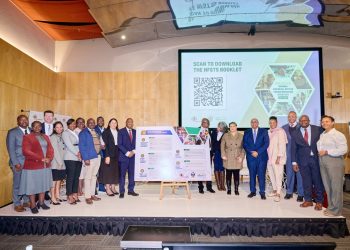
Banks loans and mortgages were the major drivers of household credit in August, latest figures show.
An analysis carried out by research firm Simonis Storm revealed that bank loans and advances rose 6.2% year-on-year (y/y), while mortgages went up 1.7% at a time when credit extended to the private sector grew by 4.6% y/y in August 2022, compared to 4.0% y/y in July 2022.
Simonis Storm added that credit uptake by corporates – which makes up 32% of total credit extended – grew by 8.2% y/y in August 2022 compared to 6.4% y/y in the prior month, whereas household credit uptake increased by 2.0% y/y in August 2022 compared to 2.2% y/y in the prior month.
“Specifically, corporate credit extension was mainly driven by businesses in the mining and services sector,†said Simonis Storm, quoting the Bank of Namibia.
Other loans and advances rose 19.4% y/y and instalment credit shot up 14.9% y/y were the biggest contributors to corporate uptake.
Simonis said instalment credit growth is consistent with the double-digit increase going up 37.9% y/y and 55.2% month-on-month (m/m) in vehicles being sold in August 2022.
The economic advisory firm added that South Africa’s economic growth rates have been lower than Namibia this year due to flooding at key ports, theft and vandalism of railway infrastructure for scrap metal sales and severe load-shedding have all contributed to this.
However, credit growth in South Africa has persistently come in higher than credit growth rates in Namibia.
“It could be due to better economic prospects in South Africa, demand for credit is higher than in Namibia or that banks are more risk averse in Namibia. Based on the latest quarterly data released, we see that private consumption expenditure grew at a faster pace in 1H2022 than the same period last year, despite growth in household credit trending down,†said the analysts.
This could signal an increase in cash-based transactions, said Simonis Storm, with a N$13 billion pay out from life insurance companies in the last two years.
On the other hand, net investment in the economy has improved during the first half of 2022 at the same time that the pace in corporate credit growth has increased, read part of the analysis.
However, credit growth for both households and corporates exceeded economic growth rates for most of the first quarter of 2015 to fourth quarter of 2021 period implying that credit was mainly used for consumption purposes.
“This trend has changed during the first half of 2022, but this could also be due to banks being more risk averse post the pandemic outbreak as opposed to current credit being used for productive investments.Â
“As mentioned in previous reports, we see high demand for credit from SMEs and various other sectors in our economy. This is despite Namibia being in part of the global interest rate hiking cycle.â€Â
Year-to-date, BoN has hiked its repo rate by 175bps and is expected to hike by 75bps on 19 October 2022.











